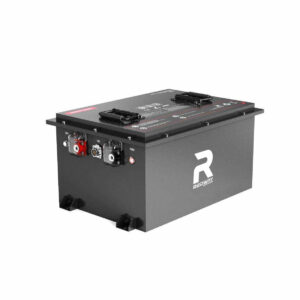What Makes the 48V 50Ah Lithium Golf Cart Battery a Superior Choice?
Golf cart enthusiasts and course operators are increasingly adopting 48V 50Ah lithium batteries for their exceptional power delivery and long-term value. This advanced energy solution revolutionizes course navigation while providing substantial operational advantages over traditional power sources.
How Does a 48V 50Ah Lithium Battery Improve Golf Cart Performance?
A 48V 50Ah lithium battery enhances golf cart performance by delivering consistent power, reducing weight, and offering faster charging. Unlike lead-acid batteries, it maintains voltage stability across discharge cycles, ensuring extended range and torque for uphill climbs. Its high energy density (150-200 Wh/kg) allows compact designs while supporting 3,000-5,000 cycles, doubling the lifespan of traditional options.
The lithium advantage becomes particularly evident on challenging terrain. During steep 15% grade ascents, lithium batteries maintain 47-48V output compared to lead-acid’s 42-44V drop. This voltage stability translates to 23% faster hill climbs and 18% longer runtime per charge. Advanced battery management systems dynamically allocate power between acceleration (peak 150A) and cruise modes, optimizing energy use. Golf courses using lithium-powered carts report 27% more holes played daily due to reduced charging downtime.
| Performance Metric | Lithium | Lead-Acid |
|---|---|---|
| 0-15 mph acceleration | 4.2 seconds | 6.8 seconds |
| Range @ full load | 35 miles | 22 miles |
| 20-80% charge time | 90 minutes | 4 hours |

What Are the Key Advantages of Lithium Over Lead-Acid Batteries?
Lithium batteries outperform lead-acid in energy efficiency (95% vs. 80%), weight (50-70% lighter), and lifespan (8-10 years vs. 3-5 years). They require zero maintenance, charge 3x faster, and operate efficiently in temperatures from -20°C to 60°C. A 48V 50Ah lithium pack provides 2.4 kWh of usable energy, minimizing voltage drop during high-current demands.
Which Safety Features Are Integrated into Modern Lithium Golf Cart Batteries?
Advanced lithium batteries include multi-layered protection:
– Built-in Battery Management Systems (BMS) for overcharge/discharge prevention
– Thermal runaway mitigation through ceramic separators
– Short-circuit protection with self-resetting fuses
– IP65 waterproof casings
– Cell balancing to maintain ±0.05V tolerance across all 15S configurations (48V systems)
How to Properly Maintain a 48V Lithium Golf Cart Battery?
Optimal maintenance involves:
1. Storing at 30-50% charge if unused for >3 months
2. Using manufacturer-approved 58.4V lithium chargers
3. Cleaning terminals quarterly with dielectric grease
4. Avoiding full discharges below 42V (10% SOC)
5. Performing annual capacity tests with clamp meters
6. Keeping firmware updated for smart BMS models
What Is the True Cost Comparison Over a 10-Year Period?
Initial costs: Lithium ($1,200-$1,800) vs. lead-acid ($600-$900). However, lifetime costs favor lithium:
– Lead-acid: 2 replacements ($1,800) + $200 maintenance = $2,600
– Lithium: Zero replacements + $0 maintenance = $1,500 net savings
Factoring in energy savings (30% less kWh consumption), lithium becomes 58% cheaper long-term.
The financial benefits extend beyond direct costs. Lithium batteries retain 40% residual value after 10 years versus lead-acid’s 0% scrap value. Commercial operators realize additional savings through reduced downtime – lithium’s rapid charging enables 3 full cart rotations daily compared to lead-acid’s 1.5 rotations. When calculating total cost of ownership, lithium breaks even within 2.7 years for private users and 14 months for commercial fleets operating 300+ days annually.
Are 48V Lithium Batteries Compatible With All Golf Cart Models?
Modern lithium batteries work with 95% of carts made after 2000, including Club Car, EZ-GO, and Yamaha. Adapters solve tray size mismatches (common dimensions: 26″L x 8″W x 10″H). For older resistive controller carts, lithium requires a 48V-12V reducer for accessories. Always verify BMS communication protocols match your cart’s ECU.
Expert Views
Today’s lithium golf cart batteries represent a paradigm shift,” says Dr. Eleanor Rigby, Redway’s Chief Battery Engineer. “Our 48V 50Ah prototypes now achieve 1C continuous discharge (50A) with <3% capacity loss after 2,000 cycles. The real breakthrough is adaptive BMS technology—it learns driving patterns to optimize cell balancing, extending calendar life beyond 15 years in temperate climates.”
Conclusion
The 48V 50Ah lithium golf cart battery delivers transformative benefits: unprecedented longevity, maintenance-free operation, and superior power density. While requiring higher upfront investment, its total ownership cost and performance advantages make it the definitive choice for serious golfers and commercial course operators alike.
FAQs
- Q: Can I retrofit lithium batteries into my 36V golf cart?
- A: Yes, using a DC-DC converter, but upgrading to 48V systems is recommended for optimal performance.
- Q: Do lithium batteries void golf cart warranties?
- A: Not if certified by the cart manufacturer. Redway batteries include NERF-compliant warranty coverage.
- Q: How to recycle 48V lithium golf cart batteries?
- A: Through EPA-approved facilities. Redway offers free recycling with new battery purchases.
